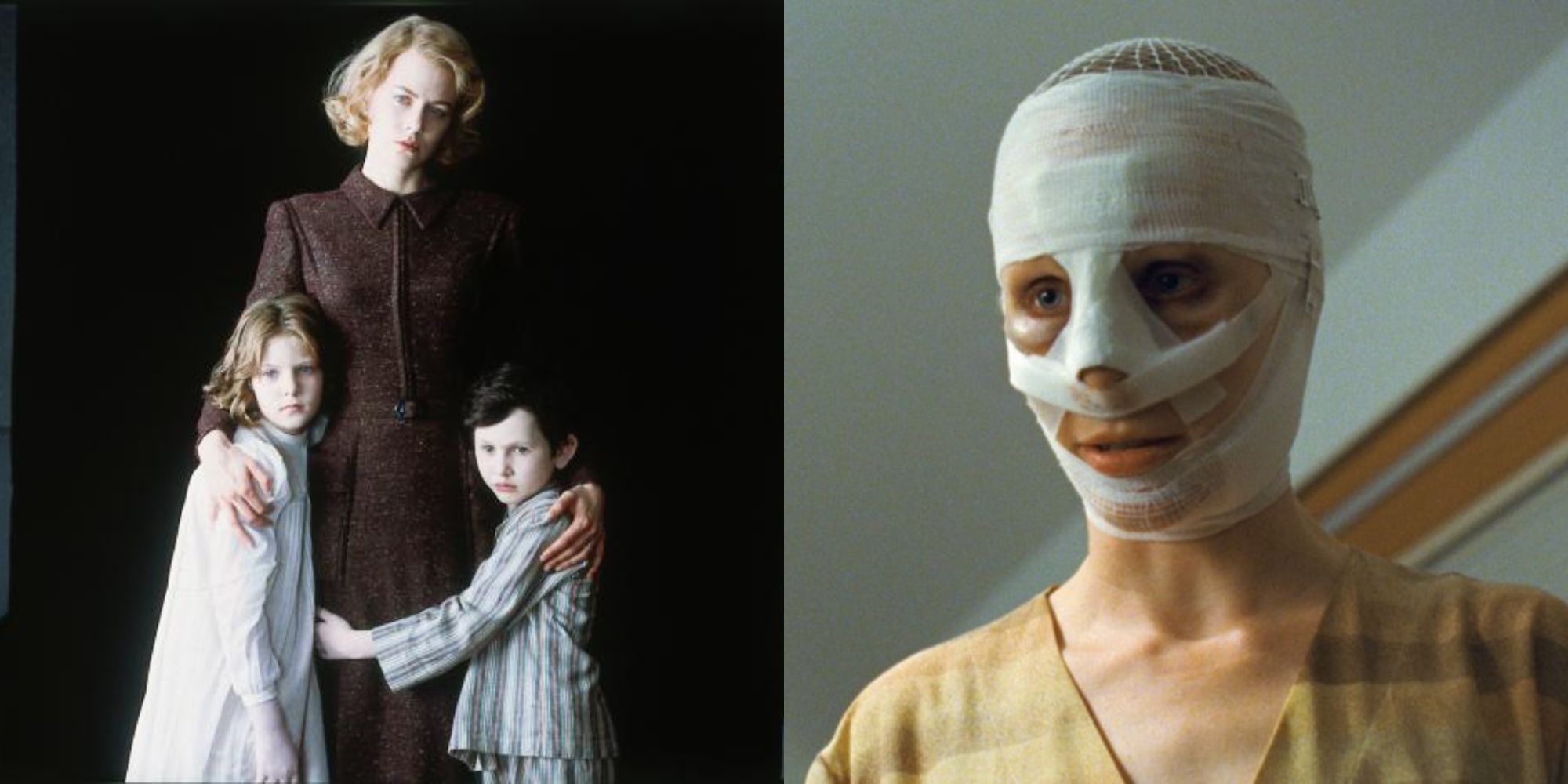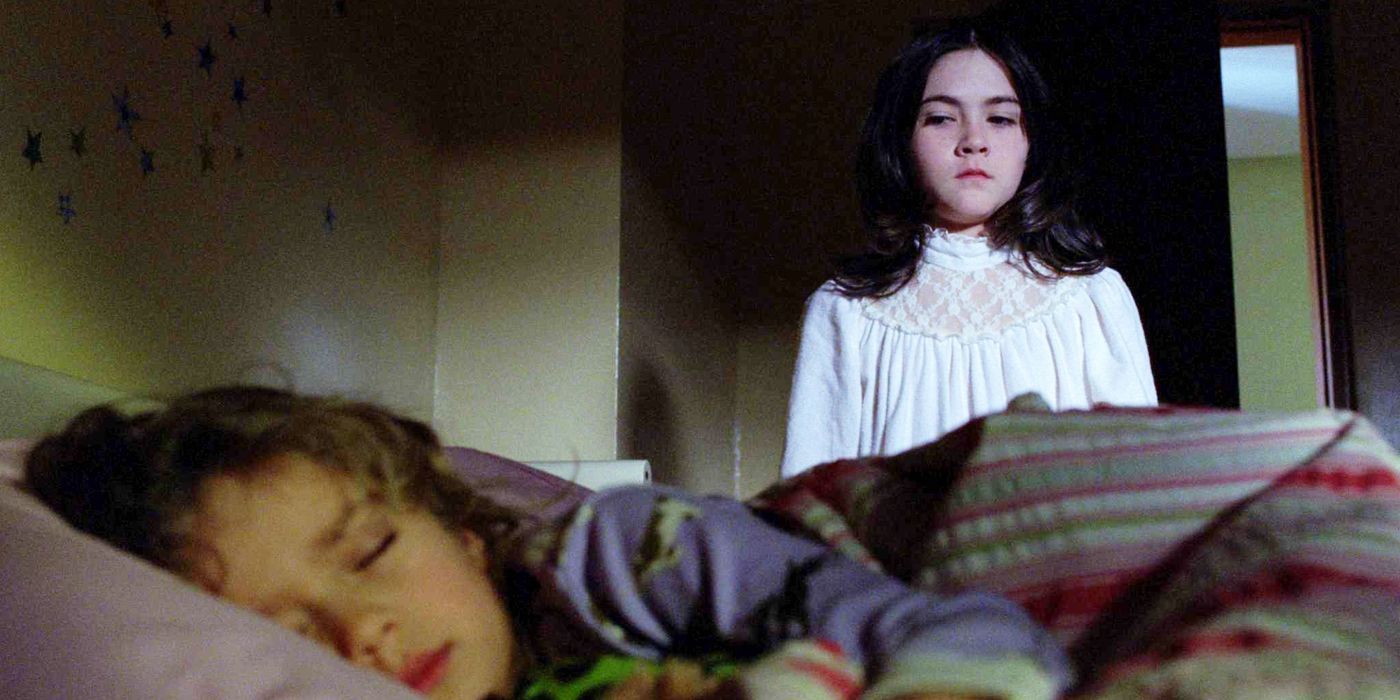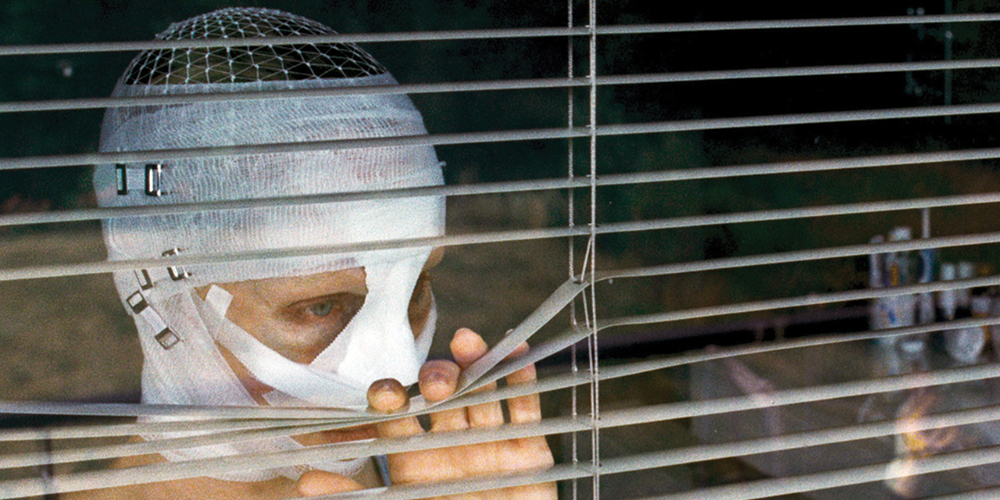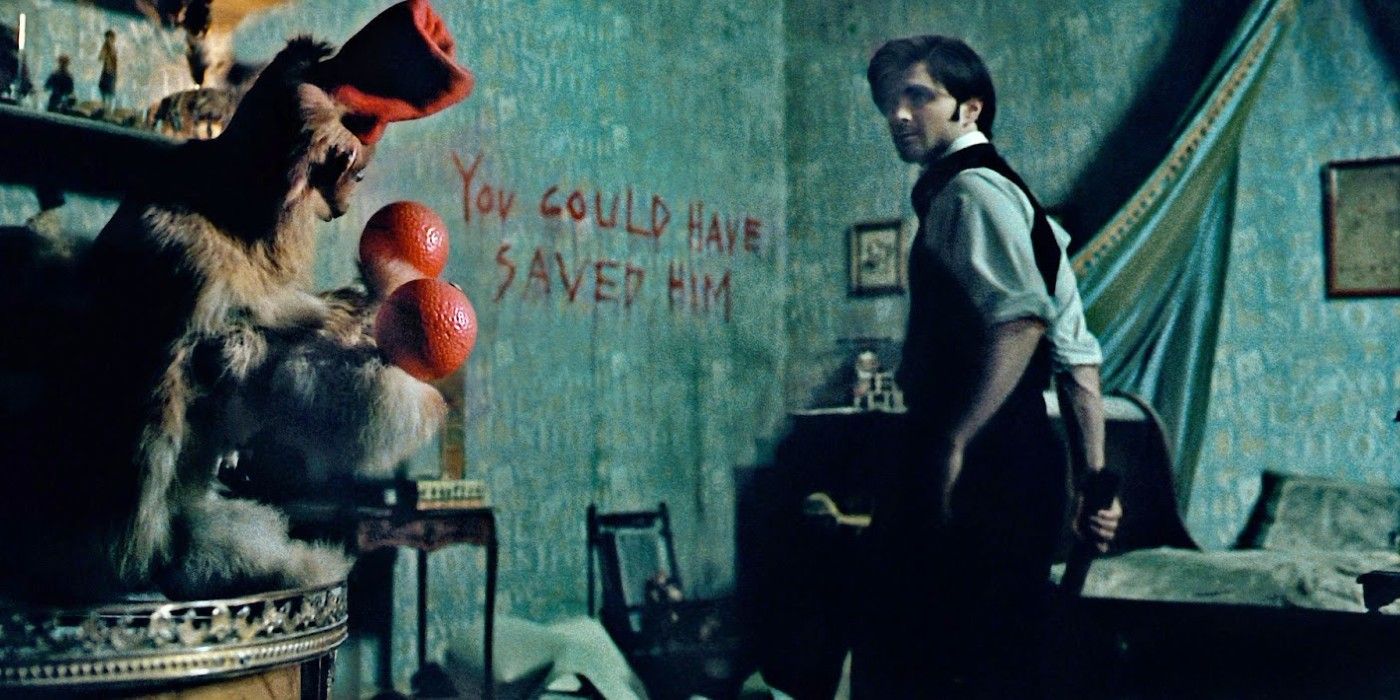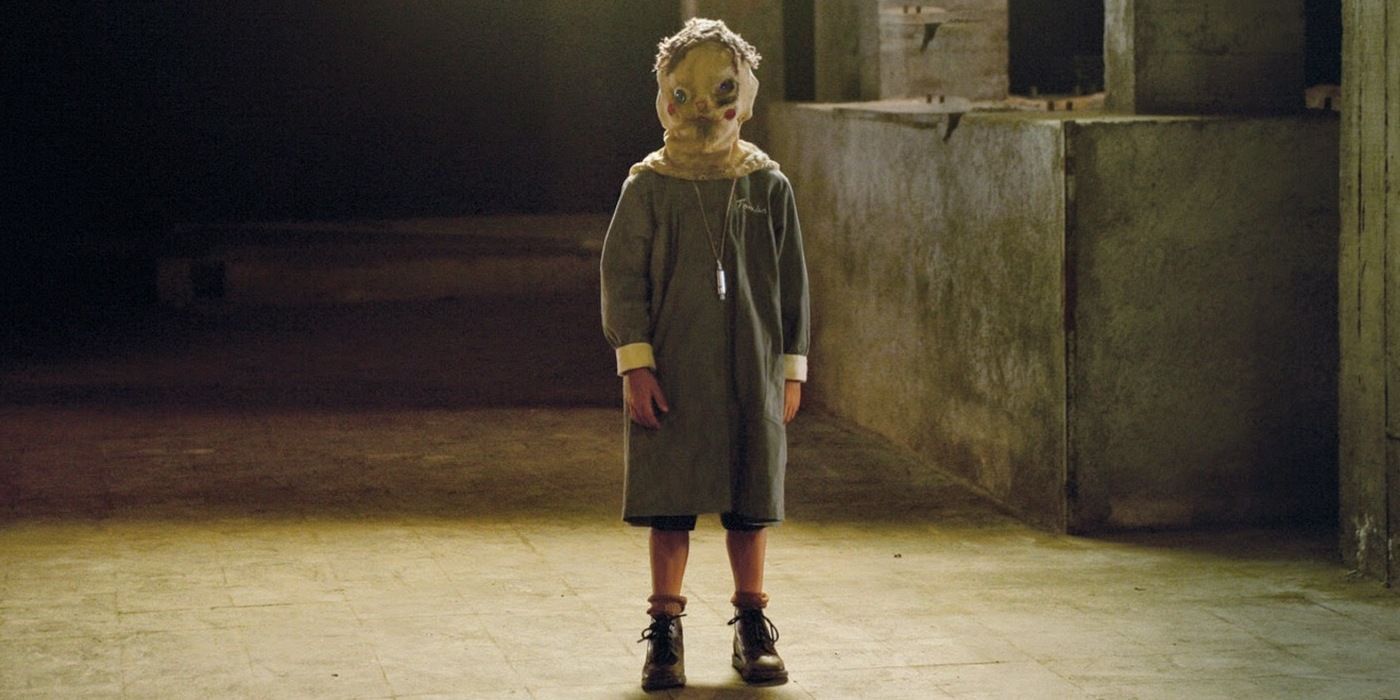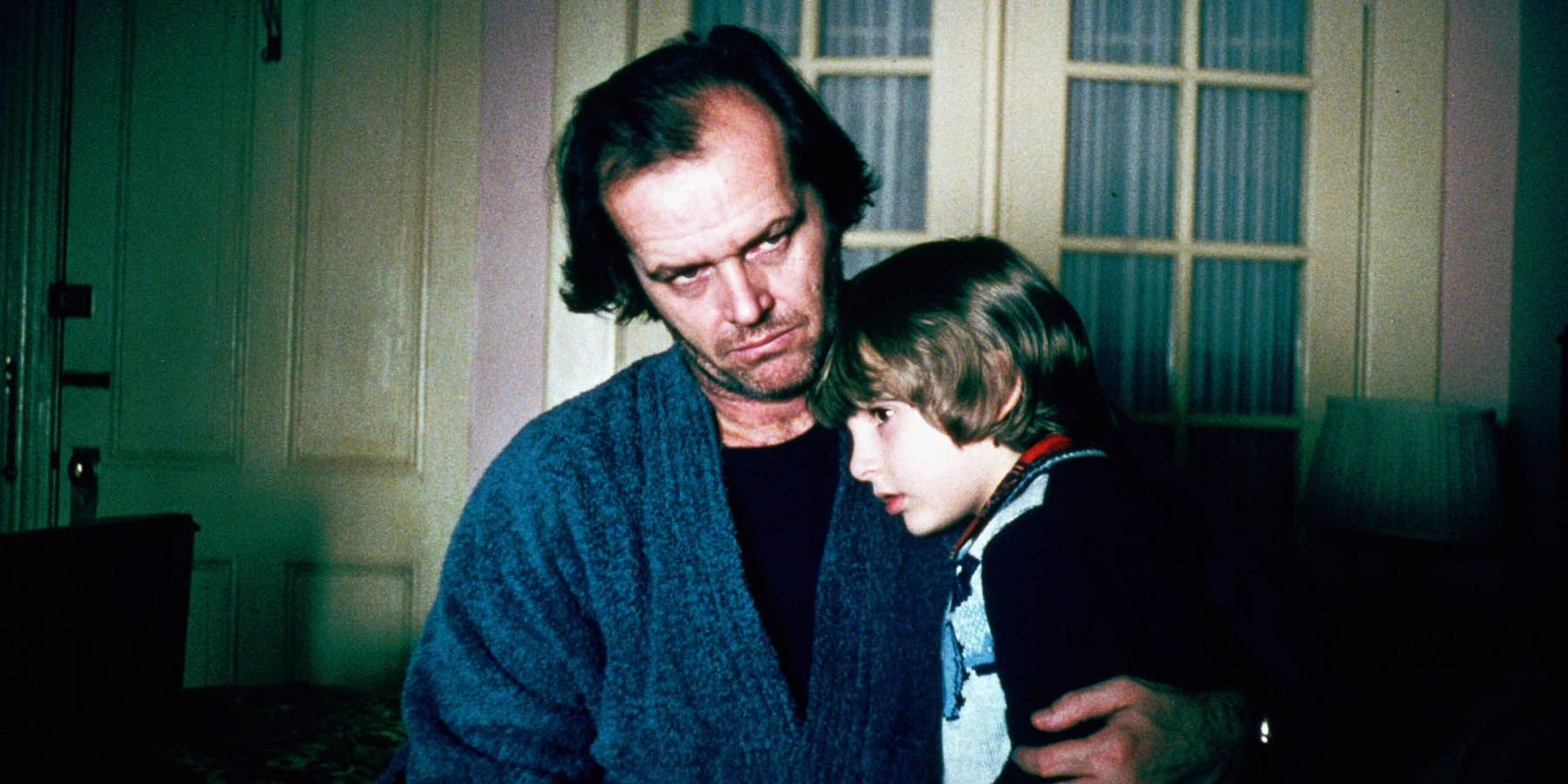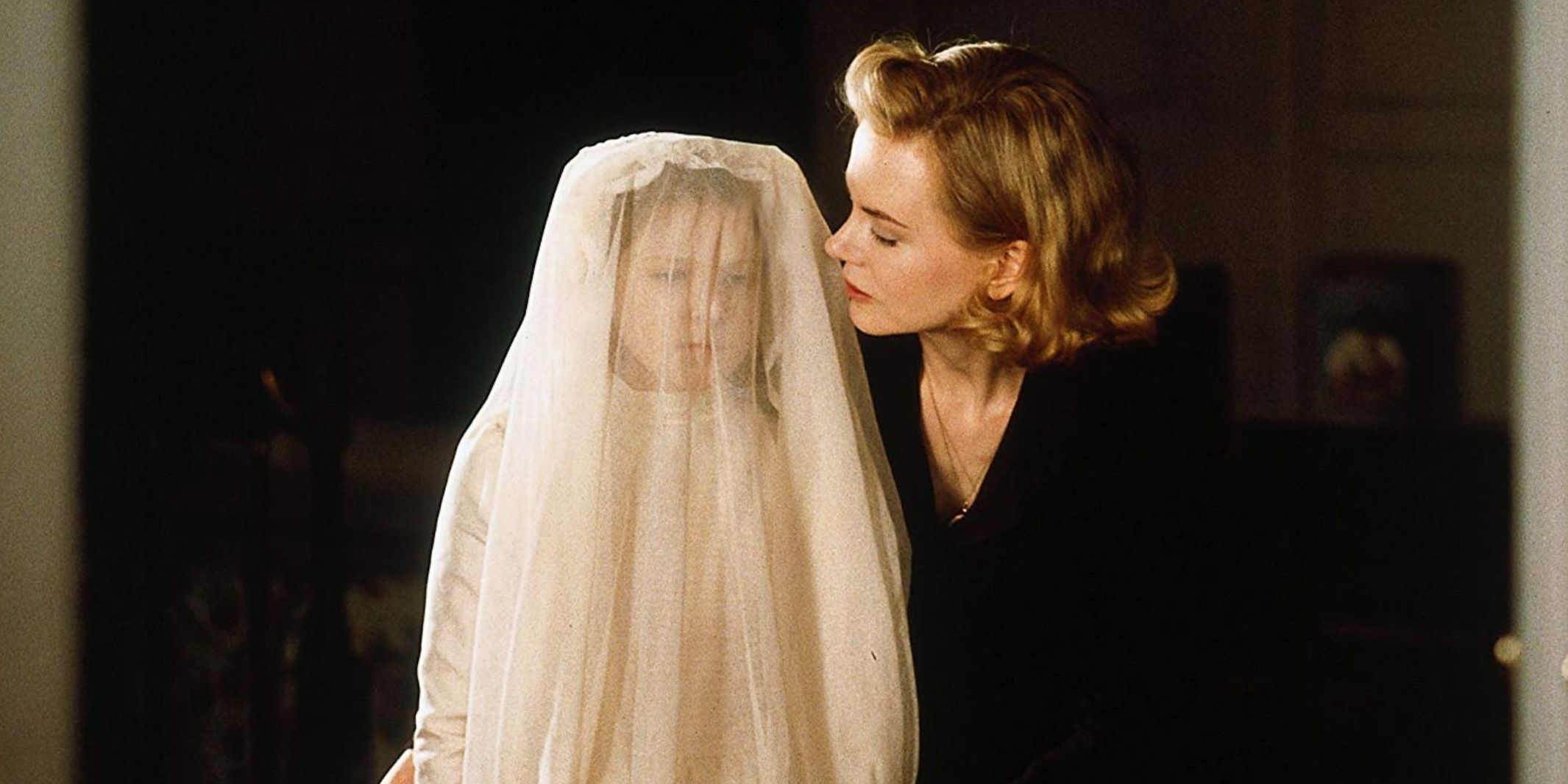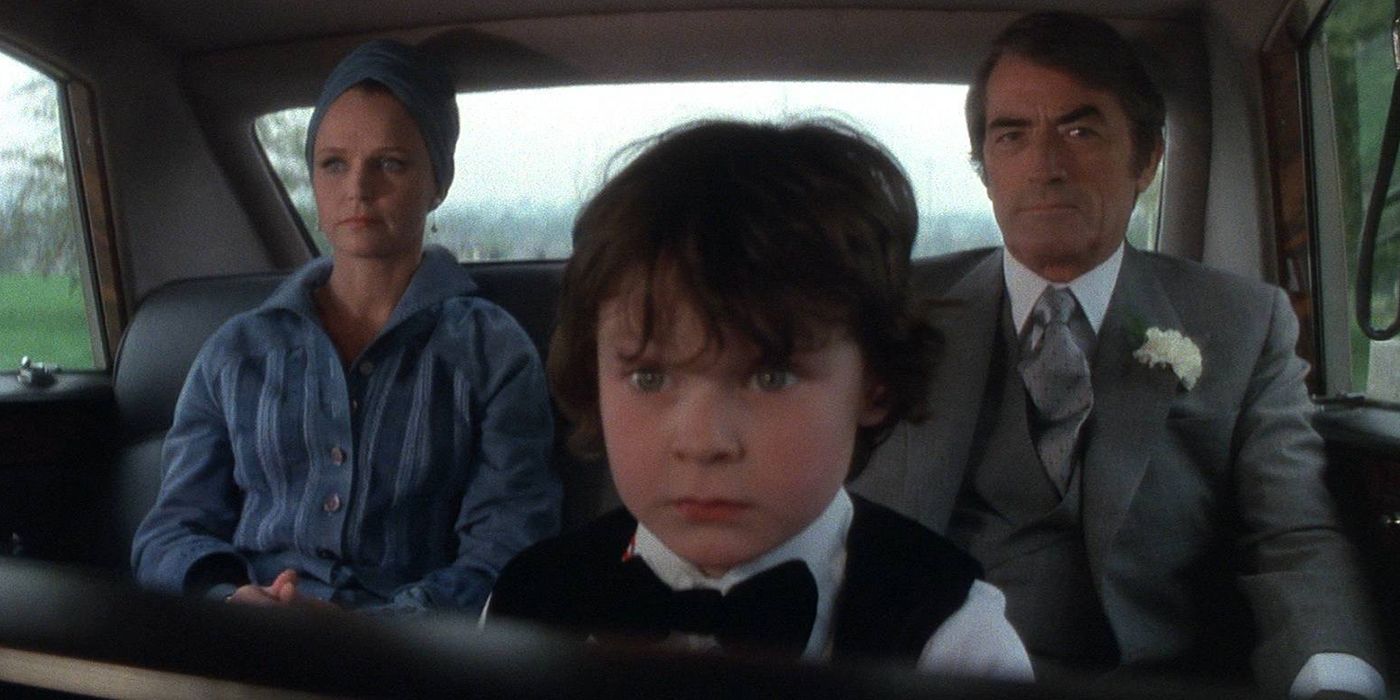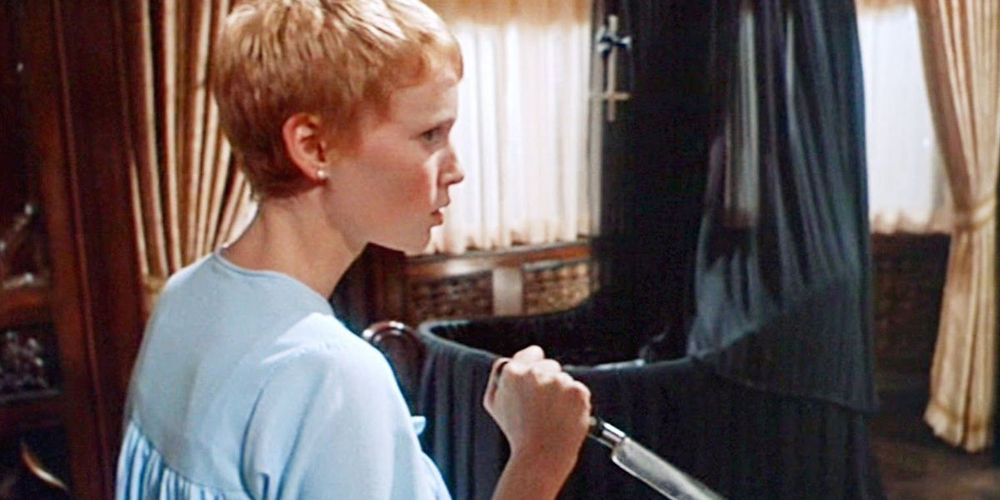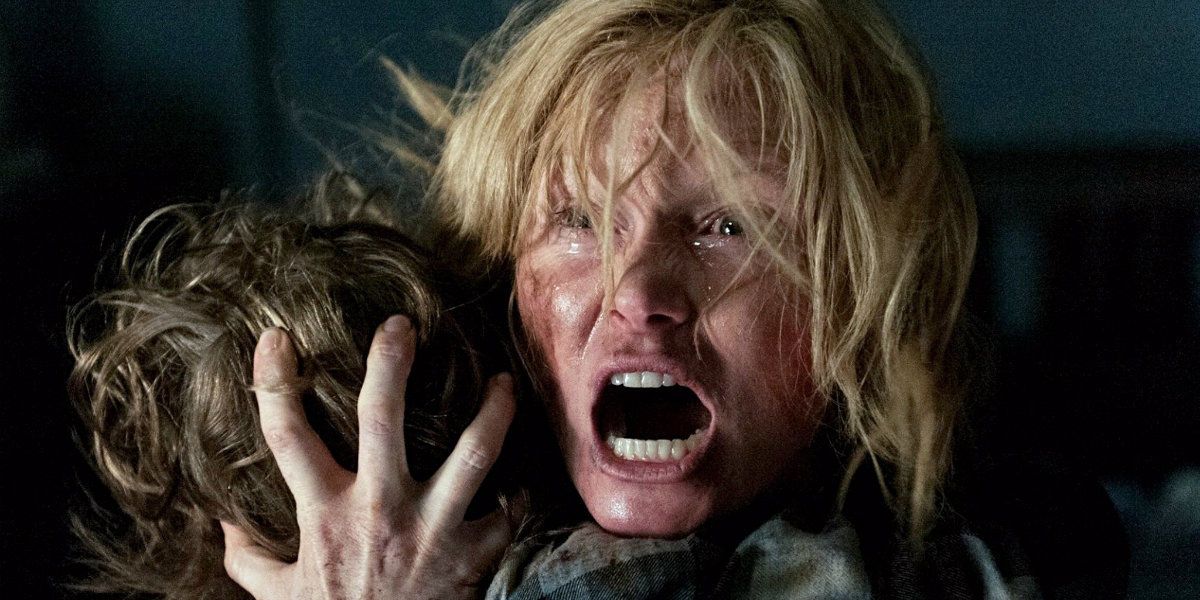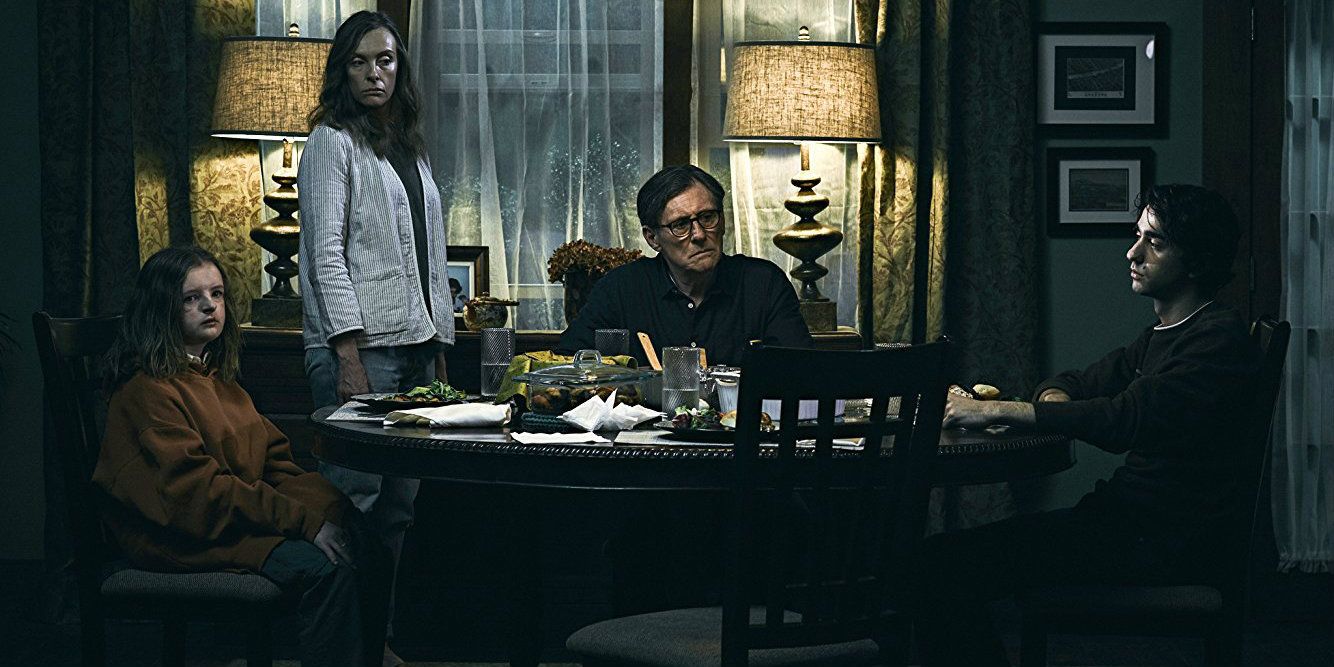With the release of Orphan: First Kill in August 2022, a prequel to 2009's Orphan, the genre revisits parents' worst nightmares. Being a parent can be scary - especially if horror movies have anything to say about it.
Motherhood, fatherhood, parenting, and pregnancy have long held audiences' fascination in horror cinema. From iconic '60s and '70s movies like Rosemary's Baby to modern fare from A24, parenthood itself is a major source of the horror seen in these films.
Orphan (2009)
Inspired by the true story of Barbora Srklová, 2009's Orphan is about a couple, Kate and John, who adopt nine-year-old Esther from Russia. Healing from a previous infant loss, Kate and John hope Esther will complete their family, but she turns out to be a disturbed individual with a dark past and sinister secrets.
Orphan faced criticism from adoption groups (per San Francisco Chronicle) for its depiction of an adoption gone wrong, but it did tap into real fears. The film seemed to anticipate or inspire another real-life case, concerning adoptee Natalia Grace and her family (BBC). Meanwhile, Orphan's reviews were mixed, but Isabelle Fuhrmann's chilling performance as Esther received widespread praise. She returns in the prequel, Orphan: First Kill, proving that viewers' fascination with creepy children isn't going anywhere.
Goodnight Mommy (2014)
The Academy Award-nominated Austrian horror film, Goodnight Mommy, has a few disturbing twists up its sleeve. After their mother returns home from major cosmetic surgery, twins Elias and Lukas begin to suspect that the woman underneath the bandages might not be who she says she is. They turn on her gradually, eventually subjecting her to acts of torture to elicit the truth.
The Mother, meanwhile, is faceless, isolated, and incapacitated. Because she diverges from traditional domestic and maternal expectations, the boys justify their slide into depravity and torment. Good Night Mommy delivers grotesque psychological horror through a complex and dramatic exploration of the mother-child relationship.
The Woman In Black (2012)
Though somewhat rarer than the single mother horror movie trope, there are some excellent horror films about single fathers. 2012's The Woman In Black is the second onscreen adaptation of the novel by Susan Hill, and it follows Arthur Kipps, a young widowed lawyer who travels to a remote - and haunted - estate to put a deceased person's affairs in order. Leaving his four-year-old son in the care of a nanny, Arthur suffers the unpleasant attitudes of the townsfolk and a series of supernatural incidents at the estate.
As the mystery of the ghostly Woman in Black unfolds, so do incidents of child loss, historical and contemporary to the story. Arthur, played by Daniel Radcliffe, wrestles with continued grief for his late wife and fear of parenting solo. The revelation of the Woman in Black's own status as a bereaved parent cements the significance of this theme, bringing an undercurrent of tremendous grief and vengeance.
The Orphanage (2007)
Guillermo Del Toro served as executive producer on the chilling Spanish-language Gothic horror The Orphanage. It follows Laura, who, with her husband Carlos and adopted son Simón, returns to the orphanage in which she was raised, hoping to reopen it as a home for children with disabilities. From the jump, unusual things start happening - including Simón's claims of befriending a masked child at the orphanage to his sudden disappearance.
At the risk of spoiling several tragic twists, suffice it to say that The Orphanage explores the complex emotions associated with adoptive parenting and caring for children will chronic illness or disability. Laura is a mother figure who's easy to relate to, but the more villainized Benigna, a social worker with a mysterious past, also cultivates audience sympathy for what she's been through. Alongside its devastating reveals and atmospheric terror, The Orphanage is one of the most visually stunning horror films of the 21st century.
The Shining (1980)
Based on the novel by Stephen King, Stanley Kubrick's horror masterpiece The Shining uncovers the monstrous nature a seemingly ordinary man. Driven to violence by a combination of addiction, cabin fever, and creeping supernatural influence, Jack Torrance turns on his wife and son while serving as the Overlook Hotel's winter caretaker.
The Shining is interested in cycles, and in the lingering presence of the past in today's affairs. Likewise, it explores the strained relationship between Jack and his young son Danny, who possesses the titular telekinetic powers. Ultimately, though Danny and his mother Wendy escape Jack's wrath, the film is pessimistic about the possibility of generational change. It actualizes a great parenting fear: that our children will inherit our worst qualities, and cycles of trauma will remain unbroken. The Shining's legacyquel, Doctor Sleep, confirms that Danny inherited many of his father's demons.
The Others (2001)
A seemingly straightforward haunted house film, The Others spins a poignant gothic tale with a tragic twist. Centered on Grace Stewart (Nicole Kidman), a widowed mother of two who suspects her home is inhabited by ghosts. These "others" are seemingly dismayed by the family's presence, and Grace sets about ridding her house of the intruding spirits.
Nothing in The Others is as it seems, but the approach to the mystery humanizes Grace's devotion to her family before revealing the full extent of her grief. Using the conventions of gothic horror as metaphors for loss and repression, the film offers a nuanced picture of a mother reckoning with insurmountable grief.
The Omen (1976)
Richard Donner's The Omen is a quintessential '70s horror movie about a couple, Robert and Kathy, who unwittingly raise the Antichrist in the form of Damien Thorn. Violence, death, and destruction follow the family as Damien comes of age; the true horrors commence as Robert, who replaced his own deceased child at birth with the infant Damien, investigates the truth.
The Omen torments its characters with the revelation that the child they lovingly raised is a monster - and the even more devastating realization that Robert must kill his own son for the safety of others. It plays on real-life fears of loss of control and guilt that come with parenting, as well as age-old storytelling conventions about the younger generation rising up to overthrow their parents.
Rosemary's Baby (1968)
Widely considered one of the greatest horror movies ever made, Rosemary's Baby follows the title character's difficult pregnancy and growing paranoia about her meddlesome New York neighbors. As it becomes clear that the neighbors are part of a Satanic coven and may have sinister intentions for her child, Rosemary tries in vain to prevent their influence.
With resonant themes of bodily autonomy and emotional manipulation that are even more relevant today, the 60s classic ultimately doubles down on its heroine's maternal instinct. After all the horrors Rosemary endures, and the reveal that her child is the spawn of Satan, she still chooses motherhood. A captivating central performance by Mia Farrow - and an Oscar-winning turn by Ruth Gordon - lend Rosemary's Baby sophistication and timelessness. Reddit may want a reboot of this classic horror movie, but it's hard to imagine improving on its handling of the themes and material.
The Babadook (2014)
The Australian horror film The Babadook tells its supernatural haunting story through the lens of a grieving widow and her difficult young child. Terrorized by a figure from a creepy kids' book, Amelia directs her growing frustrations at her six-year-old son Sam, and begins to lose her grip on reality.
The Babadook portrays, in unsettling detail, the overwhelming burdens of single motherhood and grief. As Amelia faces the threat of the Babadook, she also wrestles with guilt over her feelings of aggression toward Sam. The film is sympathetic toward Amelia, recognizing the impossible emotional strain of her situation, and arrives - through its painful expression of the horrors of parenting - at a harmonious conclusion.
Hereditary (2018)
Ari Aster's directorial debut from A24, Hereditary, led with marketing that suggested it was a run-of-the-mill horror movie about a terrifying child. However, it surprised audiences by featuring a much more complex, unexpected plot complete with demonic possession, body horror, and generational trauma.
Toni Collette's Annie is the film's central, tormented character, who struggles to reconcile her feelings for her psychologically abusive late mother. Meanwhile, she begins to confront her own ambivalence about motherhood and her previous unconscious attempts to harm her two children. Giving voice to her unspoken, unpleasant reservations about parenthood, Annie feels exposed and ashamed. The tension between Annie's devotion to her family and her violent impulses drives her toward the film's gruesome climax.

